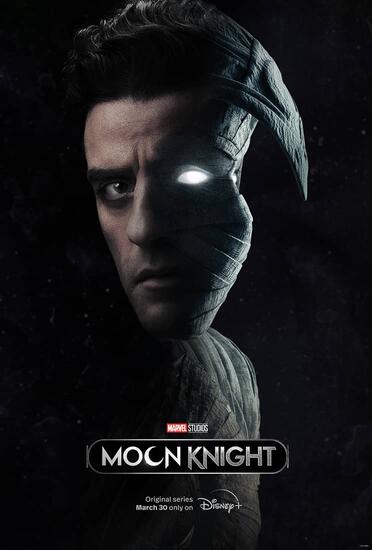
A few weeks ago, I wrote a review covering the premiere for Marvel’s newest TV show, “Moon Knight.” In that episode, viewers were introduced to Moon Knight/Steven Grant, portrayed by Oscar Isaac, an eccentric with Dissociative Identity Disorder (DID) who finds himself trapped between different alternate identities as well as an insidious plot involving cults, Egyptian gods and supernatural forces.
The first episode was a chaotic start to the series, but its punchy ending was satisfying enough that I decided to keep with the show despite its initial struggles. Ultimately, five weeks later, I was surprised by the way the narrative managed to come back together through six episodes that contained unique characters, settings and relationships.
The most interesting aspect of Moon Knight’s character is that he is a hero who is constantly at war with himself, which creates a lot of conflict that is worth exploring on the screen. Whether in or out of costume, he cannot escape the struggles he lives with as a man who possesses multiple alternate identities with competing agendas. This means that even while he is in battle, he runs the risk of losing control of his body.
At the same time, Moon Knight is forced to carry out the wishes of the Egyptian moon god Khonshu, who appears to have questionable ethics. The show is at its strongest when it details how Moon Knight grapples with these challenges through communication and compromise.
The narrative is also strengthened by a worthy antagonist, Arthur Harrow, played by Ethan Hawke. Initially, I found Arthur melodramatic, but he became an intriguing and threatening villain when his shameless devotion to his goal was revealed. This villain is willing to kill, manipulate and even hypnotize his victims to get what he wants. His mere existence rallies the viewer behind Moon Knight’s quest.
What may hold the series back for some is the patience it requires. The first few episodes are teeming with complicated exposition that asks a lot more of the viewer’s attention than I had originally expected. However, the recaps that begin each episode are a helpful inclusion.
Additionally, the series missed an opportunity with its portrayal of Steven’s Judaism. There’s nothing particularly Jewish about the show other than a few seconds of the hero crumpling a kippah in his hands during an emotional scene. This is somewhat disappointing.
However, I did feel that the casting of Egyptian-Palestinian actress May Calamawy as Moon Knight’s girlfriend, Layla El-Faouly, was a favorable choice that remedies one of the problems I mentioned in my review of the first episode. I like that the couple was less like a hero and a sidekick, and more like a team. Layla is also not overly sexualized, which allows audiences to experience what a romance might look like between a strong-willed woman and a troubled man with multiple alternate identities. In short, the show handles their relationship with maturity.
I believe that “Moon Knight” lands slightly above average in terms of Marvel content, so I feel fans will enjoy it and be pleased by it for the most part. I also feel this may be Isaac’s most ambitious performance because he is forced to talk to himself and juggle two alternate identities in conversation during almost every scene.
If you have the Disney+ subscription and liked the show’s trailers, then I feel this show is worth your time.























































































































